The protection of undersea cables is rapidly becoming a top security priority for NATO and European countries.
Recent operations in the Baltic Sea, particularly NATO’s Operation Baltic Sentry, reflect heightened concerns over hybrid threats, including alleged acts of sabotage against vital undersea infrastructure.
For Ireland, this raises urgent questions about the security of the vast network of critical cables along its coast, which serve as the backbone of global internet and financial transactions.
Ireland plays a crucial role in the global undersea cable network, connecting Europe to North America via multiple high-capacity transatlantic links. Its undersea infrastructure handles enormous amounts of internet traffic, international communications, and financial data, making it a high-value target for hybrid warfare tactics. With over 20 major undersea cables landing on Irish shores—such as those at Killala Bay, Ballinskelligs, and Loughshinny—any disruption could have wide-reaching implications not only for Ireland but for the broader European and global economy.
Many financial institutions and tech giants rely on these cables to conduct transactions and manage data flow between the US and Europe. Damage to undersea infrastructure can interrupt communications, but it also provides an opportunity for data interception or cyberattacks.
As NATO increasingly frames subsea infrastructure protection as a strategic concern, Ireland’s relatively neutral stance leaves a potential gap in broader European defence. NATO’s operations in the Baltic highlight the shift in focus towards deterrence and proactive protection of critical maritime infrastructure.
With Russia’s suspected involvement in several recent cable-related incidents—including anchor-dragging and potential sabotage—NATO has deployed warships, maritime patrol aircraft, and cyber units to monitor and protect subsea assets.
Key implications for Ireland:
- Proactive Surveillance: NATO’s use of real-time vessel tracking, maritime patrols, and subsea monitoring systems provides a model for how Ireland could enhance its protection of cables. Currently, Ireland lacks the military capabilities and coordinated surveillance network that NATO allies have adopted.
- Hybrid Threat Awareness: Ireland must recognise that hybrid threats—acts of sabotage, cyber intrusions, and interference disguised as accidents—are not limited to military conflict zones like the Baltic. With Russian ships previously observed near Irish cables, including vessels suspected of intelligence-gathering, Ireland’s security environment is more volatile than it may appear.
- Strategic Cooperation: Although Ireland is not a NATO member, its position at the western edge of Europe makes it an essential partner in protecting the transatlantic lifeline. Increased cooperation with EU allies and NATO states in intelligence sharing and joint maritime monitoring could help mitigate risks.
Ireland should develop or acquire real-time maritime domain awareness capabilities, similar to those used in the Baltic. This could include deploying maritime patrol aircraft, underwater drones, or sonar-based monitoring systems to track activity near undersea cables.
The country should, I believe, also explore deeper partnerships with NATO and EU defence initiatives like the European Maritime Awareness in the Strait of Gibraltar (EMASoH) or the Permanent Structured Cooperation (PESCO). Sharing intelligence on vessel movements, particularly involving suspected Russian or hostile actors, would significantly improve situational awareness.
Without proactive measures, Ireland risks becoming a soft target in Europe’s undersea infrastructure security. Disruption to its subsea cables could result in:
- Severe interruptions to global internet traffic, affecting major tech companies with data centres in Ireland.
- Significant financial losses from delays in transactions and services.
- Strategic vulnerabilities for Europe, as key communications channels to North America could be severed.
As NATO ramps up its efforts to protect subsea infrastructure in the Baltic, the spotlight is now on Ireland’s role in securing transatlantic cables. While its policy of neutrality has served it well in the past, the increasing prevalence of hybrid warfare and undersea sabotage means Ireland can no longer afford to remain passive.
Collaboration with allies, investment in maritime surveillance, and a comprehensive security strategy are essential to ensuring that its position as a gateway to Europe remains an asset—not a liability. The stakes are clear: if adversaries can target cables in the Baltic, they can just as easily do so off Ireland’s coast.
As we conclude, let’s respond to some of the myths I can see this article generating on social media. When the topic of protecting Ireland’s undersea cables comes up, you can always count on the usual chorus of “Why should we pay for it? Let others pay since they use the cables too!†or “This is clearly about pushing Ireland into joining NATO!†Let’s dismantle this nonsense right now and focus on reality.
“Other Countries Should Pay Since They Use the Cables Tooâ€
Let’s not forget—these cables are Ireland’s lifeline. They support domestic communications, online banking, emergency services, e-commerce, and basic internet access for millions of Irish citizens and businesses. When the cables are damaged, Ireland suffers first.
Yes, other countries benefit from the transatlantic connections, but expecting them to pay for securing infrastructure that lies within Irish waters is a fantasy. Ireland cannot afford to sit back and hope the EU or the US will handle its security for free.
Think of it this way: If a water main bursts on your property, do you expect your neighbours to fix it for you just because they drink from the same source? Of course not.
That said, cooperation is key. Ireland should collaborate with EU partners on joint maritime surveillance and information-sharing initiatives. However, the core responsibility for securing Irish infrastructure must rest with Ireland.
“This Is Just a Backdoor Attempt to Drag Ireland Into NATOâ€
This tired argument is as lazy as it is wrong. Protecting undersea cables has nothing to do with Ireland joining NATO. Countries around the world, neutral or not, have recognised that hybrid threats—like sabotage, cyberattacks, and espionage—require proactive defence measures.
Ireland can and should protect itself without compromising its neutral stance. Sweden and Finland, before joining NATO, invested heavily in maritime defences and operated successfully with EU partners like PESCO (Permanent Structured Cooperation). Ireland can follow this example without joining any military alliance.
Additionally, Ireland has access to EU maritime initiatives like MARISA (Maritime Integrated Surveillance Awareness) that enable coordination without NATO involvement. Neutrality does not mean inaction—it means independence while ensuring national security.
“There’s No Real Threat to Ireland’s Cablesâ€
The idea that Ireland’s undersea cables are safe because nothing major has happened yet is willful ignorance. Just because the cables haven’t been severed doesn’t mean they’re not under constant threat. In fact, Ireland’s digital infrastructure faces regular cyberattacks from state-sponsored actors, including Russia and China. These attacks target everything from financial institutions to government servers.
Ireland’s transatlantic cables are a prime target for hybrid threats because of their strategic importance to global internet traffic and financial data. The only reason we haven’t seen a catastrophic event yet is that much of this activity remains covert.
And it’s not just cyber threats—Russian intelligence-gathering ships have been spotted off Irish waters, with their proximity to key cables raising serious concerns. Ireland isn’t immune to these risks. Ignoring them is like leaving your door unlocked because you haven’t been robbed yet.
“The Only Country to Invade Us…â€
Yes, let’s address this too. Some love to bring up the idea that “the UK is the only country that has ever invaded Ireland, so why should we worry about Russia or others?â€
Let’s break down why this argument doesn’t hold water:
- Today’s threats are digital, covert, and targeted at infrastructure. The cables off Ireland’s coast represent a much larger vulnerability than any physical invasion. They can be tapped, severed, or monitored without firing a single shot.
- The UK and EU are part of Ireland’s security network. Whatever historical baggage exists, modern threats don’t care about that. Countries like Russia and China won’t hesitate to exploit gaps in Irish security if they find them.
- Ireland’s digital infrastructure is already under attack. Every month, Irish banks, hospitals, and telecom providers are hit by cyberattacks from state-sponsored groups. In 2021, the HSE (Health Service Executive) was crippled by a ransomware attack linked to Russian networks. That incident should have been a wake-up call.
At the end of the day, protecting undersea cables is about safeguarding Ireland’s sovereignty, economy, and security. The threats are real, and ignoring them will only make Ireland a soft target. Neutrality doesn’t mean inaction. It means having the ability to protect yourself without relying on alliances you don’t want to join.
At the UK Defence Journal, we aim to deliver accurate and timely news on defence matters. We rely on the support of readers like you to maintain our independence and high-quality journalism. Please consider making a one-off donation to help us continue our work. Click here to donate. Thank you for your support!


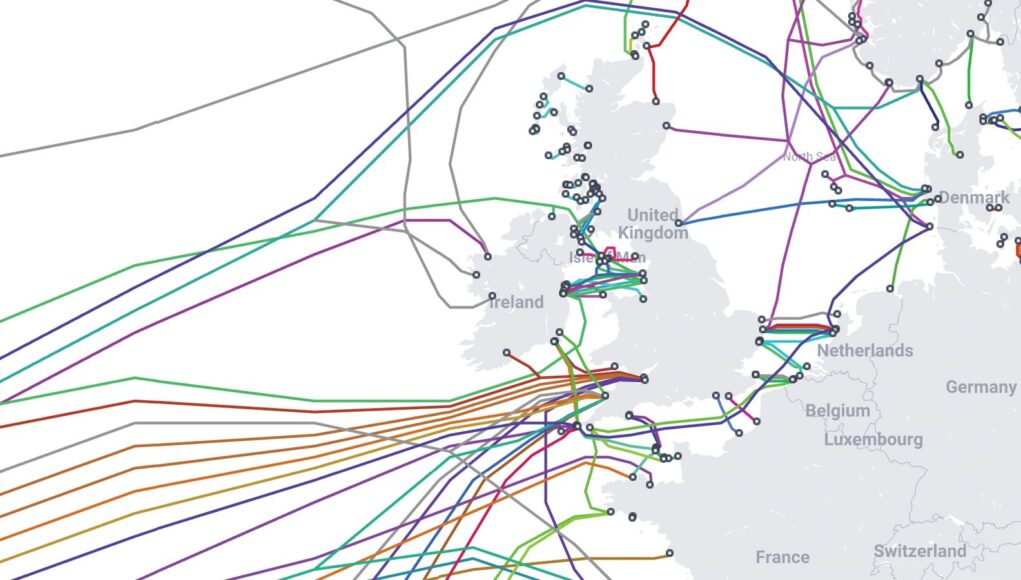
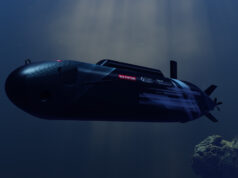
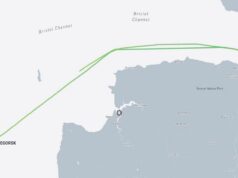
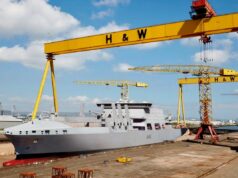
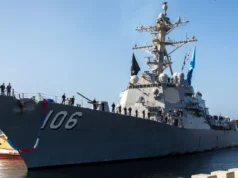
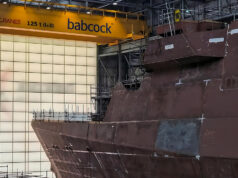

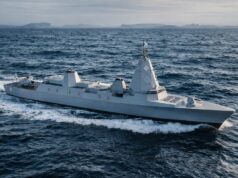
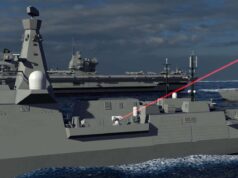
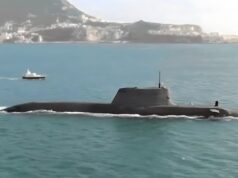
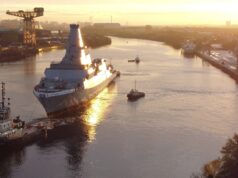

Is there anyway to route UK data that would go via Ireland to other cables that pass through UK Territoral waters , IE completely firewall Uk data needs from them? At that point we should simply stop patroling their waters and air. Draw a box in airspace and police that. When Russian bombers transit over the west cost of Ireland they might listen but Sinn Fein will never let them join NATO nor spend more. Stop defending them.
It would be grounds for the RN to have more frigates, stand outside Irish waters and not interfere, it would still mean we could track Ru subs in the GIUK
Most Atlantic cables already pass to the south of Ireland direct to America, as seen on the map provided.
There are more detailed maps, but this one suffices.
George’s points still stand, they should do more as part of a collective European effort.
The RN still tracks subs in the GIUK gap, and elsewhere.
We are not defending them, we are trying to defend air and sea approaches to us.
They won’t do more even if they should, it’s reason why we should be increasing our own defences , potentially a CAP based out of Northern Ireland, and an extra frigate or two on patrol. I think the point has to be made to Ireland, we will intercept planes and ships that come via the north west coast , but withdraw as soon as they pass into the Irish zone of responsibility, then pick them up again. If they play with Irish cables or sortie over their land so be it.
Sinn Fein IRA was always supplied by the soviets and their proxies, hence they are anti NATO.
If the US firms based there know their infrastructure isn’t safe they may withdraw. We can offer them more of a secure base..the Irish govt is openly hostile to the UK, and protecting them should end along with the CTA
The most realistic thing Ireland could invest in would be a fleet of P8.
That and spending enough to crew its existing naval vessels.
Fast jet would be a waste of time for them. And a P8 is a relatively passive asset and not too scary for the pacifists.
I suspect Ireland is about to get a rude awakening from The Donald on corporation tax – they have zero friends on that issue in EU or UK as they are just hoovering money away from where it should be taxed.
“Realistic”, by the time a new airbase was built and the AC expanded to be able to crew/support even one P8, the production line would long be shuttered.
Besides for defence its extremely rare Ireland buys outside Europe, the briefing on the Radars seems a large exception for that. If there were more airframes bought then it would be more CASA 295’s.
P8 can operate out of a closed area on a civilian airport….it is a modified commercial airliner…..
They can build a dedicated military base if they want to.
Solutions are needed not seeking problems – OK the UK specialises in finding problems and then hand wringing….
Sorry I can’t reply to your other comment, this software sucks.
Even if one of the commercial airports was willing to take on the headache, and all the other users were ok with that solution, it still doesn’t change a fundamental point that seems to be ignored over and over.
There’s less than a thousand members of the AC right now, where exactly do you suggest the crew and ground staff come from? Even if tomorrow an order was placed they would be sitting on the ground from lack of people long before recruitment and training programs could bring forward enough people.
If you ordered P8 tomorrow morning it would be a couple of years before they were handed over.
In that period of time bodies could be trained by exchange schemes etc.
It is the art of the possible.
It is more possible than fast jet…..and it deals with subs as well as Mad Vlad’s prop driven long range antiques airshiw.
The AC is currently in the process of adding 4 extra helicopters (2 145’s, 2 Mediums), and the Transport Casa (and maybe extra for the PC9 replacements) all on a staff level well below minimum for the current fleet even before those airframes are added, so again where exactly do you find the extra bodies for the P8’s flight and ground staff? There literally isn’t spare capacity within the AC, any extra personnel from ground crew to pilots/mission specialists have to be recruited and trained from a standing start, you aren’t getting that within a “couple of years”.
If there were more MPA’s to be bought, then it would be more 295s as there is already a full training and support system for that airframe within the AC.
You are aware that SF aren’t in government so their opinion on what is and isn’t spent doesn’t matter? As for your suggestion of cancelling the CTA there’s the better part of 100k of British people living in Ireland under the CTA, I’m sure they are grateful for your suggestion to screw up their lives.
There were considerably more Brits living in the EU when we left and large numbers of EU citizens in Britain who were allowed to register and remain.
That was solved, if we can end free movement , we can end the CTA.Cut off after that point. It would allow us to prevent many of the travelling community simply coming over. Also looking at the number of migrants swarming into Ireland to be handed passports , it’s a back door for them to enter the UK.
Ireland tax and economic benefits may be about to get a hit from Trump.
That could be done now , the CTA makes no sense anymore.
SF are widely supported and would whip up more support if there was any effort to work with NATO or EU defence sharing.
CTA exists as from even the 1920’s London accepted it can’t economically seal and control the border between NI and the Republic. That at the core is why it remains, and the issue that at no point London has come up with a better answer even in the Brexit talks. As for Migrants, the only ones that get passports are naturalised citizens no different than the UK system, so I have no idea where you are going there. And in fact it was your previous PM that was celebrating the Tory plan driving migrants into the Republic from the UK, so maybe not the firm ground you think?
As for SF support, it like any party has embedded and flowed with the last couple of years being bad (as evidenced by the fact that they are still in opposition after all this time), as for “effort to work with NATO or EU defence sharing” that actually has been going on for years now with no major reaction outside of our Tankie and Tankie adjacent idiots. For example George interestingly left out that we are already in the CSIP PESCO project, and are an observer to the EPC Project while having just updated our agreement with NATO with Undersea infrastructure being one of the main areas updated.
Ireland gets parts of its Air Space defence done by us for free but is still anti us, seems like all they do let migrants cross in to the north and moan about a hard boarder while getting extra defence for free.
Not part of NATO so why do we bother?
Because it is in our own interest that the RAF can cross Irish airspace.
It is part of OUR defence, not theirs.
How would they stop the RAF? Are they going to enforce this themselves?
“Don’t fly over us”
Okay, stop us.
They would not have a need to. The RAF won’t be attacking Ireland.
But the RAF may need to fly west over the Irish landmass to intercept an airliner on course to smash into London.
Which would be much more efficient than flying round Irish airspace.
Just one example.
Hell at one point the RAF asked to base a Nimrod in Ireland… Not sure what they were smoking at the time since the Troubles were still on going then.
We are NOT anti-UK. The UK is our neighbour and our friend. The past is in the past. Migrants are crossing the northern border INTO the ROI, not the othe way round. Our government has announced greater expenditure – see article in my comment below.
As for the direction of migrants crossing the border?
Cabinet told up to 90% of asylum seekers have travelled from Northern Ireland this year
https://www.rte.ie/news/politics/2024/0430/1446420-cabinet-migration-legislation/
Much ado about nothing. Ireland is well connected to GB across the Irish Sea. The question of Irish neutrality is for the Irish to decide.
Ireland Announces Record $1.5 Billion Defense Budget for 2025
https://dsm.forecastinternational.com/2024/10/03/ireland-announces-record-1-5-billion-defense-budget-for-2025/
It seems strange to me that these cables are often referred to as Irish or British or European but the reality is that most of them are American
, they transit data between the US and Europe and are owned by American companies like Alphabet and Amazon. This is Americas biggest industry by far.
But we hear none of that in the debate, this is seen as a European weakness and European navies are being forced to sort it out. If the Russians do cut one of these cables they are declaring war on the USA.
You actually believe all that ? Deary deary me.
Hi Jim, I don’t think the US would go to war over a privately owned inanimate asset in Irish waters, they are heading back to their isolationist past. Just bear in mind that even sinking USN warships by Germany in 1941 in the Atlantic didn’t trigger a war ! Far more likely it would lead to a massive increase in sanctions, block all Russian ships transiting through the straits of Gibraltar and Denmark but that’s about it really.
Ireland isn’t a member of NATO so any property on its territory being damaged doesn’t breach Article 5/6.
And then you have the small matter of proof, Russia is pretty well equipped with covert underwater assets.
Bottom line IMHO is Ireland needs a very short, sharp kick in the rear from Mr Tango, unlike most US Presidents he has zero Irish heritage.
And selling tickets to that one would be fairly profitable 🤣
I don’t disagree, cutting one cable will do very little though as there are multiple cables that can be rerouted. If they take out multiple cables at the same time it’s just as much an attack on the USA as it is on Europe.
You seem to be informant if the fact that Amazon is a cloud computing company with a trashy gift shop tacked into it. Cloud computing is where it makes its money, for many years the gift ship didn’t even turn a profit. If access to Amazon’s cloud computing facilities are cut, a great many British business (including banks) would be unable to function. A stupid situation, but reducing costs is often placed above infrastructure resilience.
It would be the kind of economic crash that Liz Truss could only aspire to.
There is massive historical animosity at play with the question of the Republics responsibilities toward defence. I am one of the guilty parties in bearing a massive grudge. They frankly have no excuses, and need to accept they have responsibilities to Europe and others. They can afford it. As for neutrality? Sweden was until it saw the writing on the wall. It is up to the Irish, they will soon cry foul when the first anchor is dragged.
Ireland updated its Individually Tailored Partnership Program (ITPP) with NATO in late 2023 to address these issues of cyber and Maritime security. It should be noted that the Irish Navy/ Air Corps are now aggressively challenging lingering vessels in it’s EEZ. The Irish DOD has been procuring a lot of kit for the defence forces as of late and the recruitment campaign has started to bear fruit in enlistment. A quote below from the Oireachtas question period.
‘Ireland’s ITPP was agreed with NATO at the end of 2023. The ITPP is for a duration of four years, 2024-2028. The ITPP sets out areas for cooperation e.g. tackling cyber and hybrid threats; in enhancing resilience; in maritime security, and through the women, peace, and security agenda. It also sets out the military areas where the Defence Forces strive to attain maximum interoperability, enabling of capabilities, and the enhancement of the professionalism of the Defence Forces, and its ability to contribute to international peacekeeping operations. Partners such as Malta, Austria and Switzerland have also agreed their ITPP with NATO.’
You know it won’t matter to many here, hell even if we were spending at Polish levels there would still be a complaint.I imagine that if the contract for the Radar systems goes to Lockheed as currently briefed there will be complaints about now buying British, same if we go French for the Army,t hough it might be interesting to see the reaction if some of rumours about the NMH but are true.
I know it just bears repeating. Also I pointed it out for George just in case he missed Ireland’s updated agreement with NATO on these matters. Australia and New Zealand also have updated ITPP arrangements with NATO at the same time with similar concerns.
Not even just that, there is actual movement happening from pay and retention as you mentioned to capital investment, to actual debate and discussion on the subject as seen yesterday in Martin’s interview in the Examiner.
Yes I read it. My pop calls some Irish people as living in a ‘fools paradise’.
The gap of more people leaving the DF being recruited in the DF is closing fast which is good.
Starting salaries and benefits are very attractive currently.
It is good to hear there is movement.
But some bigger kit is needed even just for area surveillance.
This comments section has zero influence beyond it’s existence bubble. Only in the minds of it’s regulars does it have any importance. I regularly laugh out loud when reading all the seriously deluded comments from the regulars that seem to think they actually influence defence matters.
It’s such good fun though, especially when they get all butt hurt.
To me, the Irish Defence setup is an unmitigated shambles.
AIUI the current proposals for “RECORD !!!” expenditure will take them to … just over 0.2% of GDP by 2028.
George is spot on to keep a focus on it.
His focus on it has as much impact as his articles on Scottish Independence impacts, but each their own.
As for defence spending, the reality is if tomorrow it was 2% on Irish defence, the only impact would be handing back those funds at the end of the budget cycle unspent. There is literally only so much money the organisation can spend, it can’t actually absorb a much higher rate.
Oh come on, most of its kit is outdated.
Some of it is and some western militaries also have dated gear that still does the job.The new/planned equipment purchases for the Irish DF
are now taking root.
This will be a slow process but there is progress.
Indeed, I’m a bit surprised tbh that they are pushing it this year, given one was a replacement and the others still have a good few hours left…. We still need a trainer type but I can’t see much more than that before the radar system is even purchased.
The French have confirmed we are in talks about buying into the Scorpion family:
https://armyrecognition.com/news/army-news/2025/exclusive-ireland-could-soon-purchase-french-armored-vehicles-following-belgiums-camo-model
Which?
The MOAWGs? Just finished their midlife upgrade but their replacement program kicks off this year, sources suggest doubling the fleet and likely French.
The PC9 and AW139s are all less than 20 years old but their replacement programs start this year as well (rumours that it might be tied into the U.K. NMH abut if things work out), no idea about the 9s replacement. The 295s are brand new, with then transport variant coming this year.
The P50/60s are new enough, the issue being they are cheap OPVs never intended for anything like ASW, so are limited. Maybe the MRV finally crawls out of the procurement hell it’s in, or dies. But I can’t see any other new hull till closer to 2030.
The Radar selection is also meant to be announced this year, while major works are happening or planned for all the defence installations.
But yes the point stands no matter the age of the equipment, the DF can’t physically absorb, manage and use budget uplifts of billions of Euro’s in a short cycle. There isn’t enough procurement people to manage much more capital programs that are already pencilled in which themselves are a lot more than historically, while at the same time while recruitment and retention figures look better last year, it’s still a force of less than 10k of personnel. How exactly do you think they can spend “billions†in year funding?
The PC9 replacement is indeed a giant question mark.
How about telling the huge companies their cables aren’t safe where they are so either move them or gift Ireland ships to patrol the waters.
Given the weekend it was posted, wonder why George didn’t bother to cover any of the comments of the Taoiseach on the matter in the Irish Examiner interview from Saturdays paper?
Or any of the other steps taken or underway?
Also I hate this new comment system.
Its rubbish.
Looks like the ‘reply’ function for this site has been restored.
Odd piece – reads as if it was written a decade ago as does not capture any recent developments at EU or national levels.
It doesn’t even capture Irish politics the same weekend it was published.
According to the Journal this morning. movement could be afoot for the three armored vehicle replacement classes from the French for the Army. Replacing the Mowags , RG-32M and adding a third class which is a modular armored vehicle.
yeah, I tried posting the link to the story when it broke from the French but it never made it past the mods. Be interesting to see numbers given what Luxembourg and Belgium paid, there’s also going to need upgrades to workshops, stores… Interesting to see if this means we know the Javelin replacement already as well?
Between the expected announcements of this, the 139 replacement, the radars, and maybe more think this might be the largest capital spend on defence in a single cycle already by far.
More welcome news to be sure. €800 million. That’s a big spend and needed. If the Irish Defence Force is shooting for a 11,000 permanent and 4,500 Reserves in the next few years then all of these capital purchase will be needed.
Mick O’Toole in the Mirror has it at 300 vehicles now, a whole fleet replenishment and filling out of gaps, likely sp mortars, maybe artillery and air defence. Has the total at some 2 billion extra capital buy between now and 2030, and it seems we are looking at going heavily French with the H225m being mentioned as a rigidly to the 149 for the 139 replacement.
A good article from the Mirror as well as from three other sources. So that is €400 billion every year for capital investment beyond the operating budget for the next 5 years. UKDJ should also publish this new info.
The French have good gear which is welcome news.
The AW149 would mean a less steeper learning curve for the current AC crews (10-12 of theses Helos should be bought). The H225M has a track record to also consider,
The Army will need to get to increase in size for all of that extra kit . Bring back the 4th Brigade :).
The Navy I assume will be the MRV and maybe buying into the EU patrol Corvette program.
Considering that they are talking about a EU peacekeeping force for a Ukraine peace deal, Austria and Ireland will be front and center asked for participation in this.